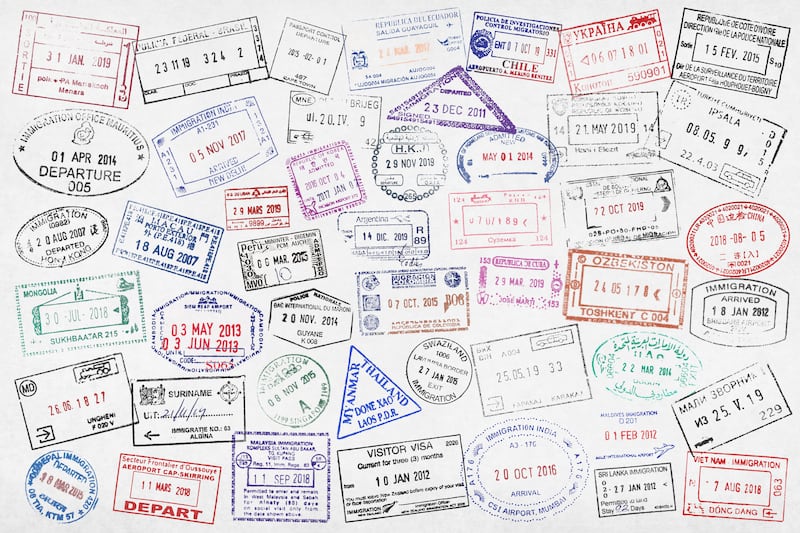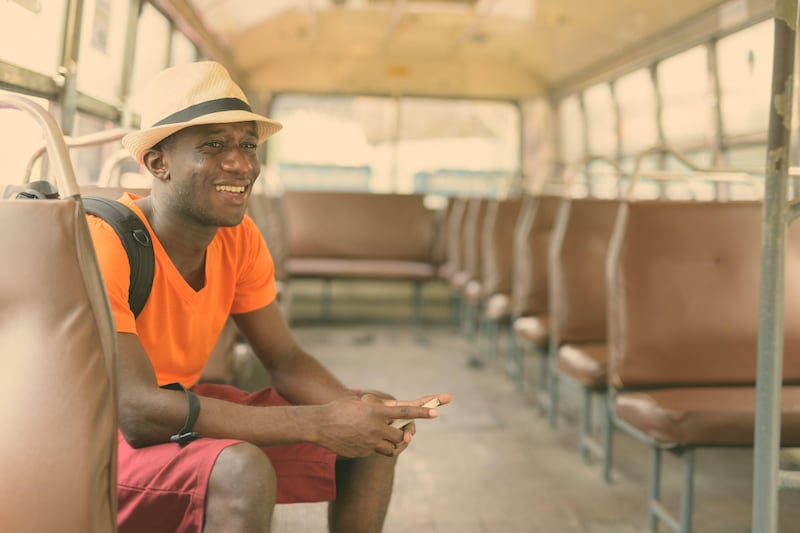It’s the reality show that keeps us all glued to TV screens – not only for the drama, but also the epic backdrops.
Race Across The World is back for a fourth series, with contestants battling to travel from Japan to Indonesia flight-free and without the use of smartphones.
Although a pot of prize money is the ultimate goal, it’s the journey itself that proves to be life-changing – inspiring viewers to embark on their own adventures.
Taking a gap year is a rite of passage for thousands of students each year. But veteran adventurers are getting on the act too, with a rise in the number of retirees booking multi-week and multi-border escapes.
For anyone considering a ‘bigger-than-average break’, here are some expert tips to stay safe and keep costs down.

Plan ahead
Contestants in RATW may have no control over the destinations they must reach, but you do.
“Whilst spontaneous destination hopping is fun, it’s important to plan ahead and understand exactly what your budget is so that you avoid spending recklessly and have enough money to enjoy yourself in destination,” advises Will Jones, a travel hacks expert from StudentUniverse, the world’s largest student and youth travel marketplace.
“Failing to effectively plan ahead, from thoroughly researching where to stay, how best to reach your destination, and even what day of the week to depart can all hurt your wallet, leaving you with less money in your pocket to actually enjoy yourself whilst travelling. Book flights as early as possible, search for sites that offer discounts, and start planning excursions ahead of arrival.”
Savvy transport options
Travelling overland like the RATW team can be time consuming – but it is more economical and will reduce your carbon footprint. Sometimes, however, the only option is flying.
“Travel expenses amount to a large proportion of the costs associated with gap years and travelling overseas,” says Will Jones. “Choosing a midweek flight or one with a connection provides the best value for money. Avoid premium seating options and additional luggage to make your money last longer, so pack light. We also recommend avoiding returning to the UK on a Saturday – costs are often considerably higher on the weekends.
Connecting flights can cut costs by a third, or even in half – worth that two-hour layover!”

Email important documents to yourself
Unfortunately, not every long-distance adventure runs smoothly. If you lose your passport abroad, getting the local embassy to issue you with an Emergency Travel Document (ETD) is made a lot easier if you can provide them with printed out copies of your documentation.
“Before you go, take photos, or scan all your documents – passports, visas, e-tickets, credit cards and email that to yourself,” recommends Tim Riley, managing director of insurance company True Traveller. “Note for British Passport holders, you only get an ETD, which is very restrictive on what it allows you to do and is not the same thing as a new full British passport.”
Buy a currency card
Beware of inflated bank charges when using cash machines abroad. A currency card pre-loaded with funds is a much better option.
“Getting one of these is very useful, as usually you get free withdrawals from cash machines throughout the world, rather than the 2% or more your bank will probably charge you,” advises Tim Riley.
“You can do all the transfers to it from the internet, and usually you get a secondary card just in case you lose your first one or have one in your travel wallet and one in your main wallet. The popular choices for traveller’s currency cards are Revolut or Currensea, but there are others out there as well.”
Find money-saving apps
From budget-savvy set-ups to platforms for trading second-hand goods, apps can help you keep costs down on a travel journey.
“Making the most of mobile apps is an incredibly easy way to keep on top of your budgeting whilst travelling,” says Will Jones.
TravelSpend helps you budget, plan, and make your income stream the most efficient it can be pre-adventure. Buy Nothing does exactly what it says on the tin: second-hand goods are listed as free of charge for anyone who needs them. Bunz is a trading app allowing you to swap your unwanted items – ideal when you’re travelling and have both limited funds and limited bag space.”

Hostels over hotels
The price of accommodation can range dramatically, potentially wiping out travel budgets.
“Save your pennies for exploring, not sleeping. There’s no need for glitz and glam when the aim of the game is to see as much of the world as possible,” says Will Jones.
“Those that avoid hostel stays when travelling, are missing out on huge savings. Hostels are not only cheaper, but they also offer the opportunity to socialise with like-minded travellers and make new friends, making them the best alternative to hotels on a gap year.”
Adequate insurance cover
Contestants in RATW can boost their budget by working while travelling.
“If you are planning on doing volunteering work or working, say in a bar or restaurant, whilst abroad, then you need to make sure this is covered in your travel insurance,” advises Tim Riley.
“Many people may know about getting cover for so called ‘ad-venturous’ activities like SUP boarding or bungee jumping, but may not realise that working and volunteering also need to be included.
It’s also really important that your travel insurance covers you if you get bitten by the travel bug and decide to extend your trip as not all standard policies allow this.”








